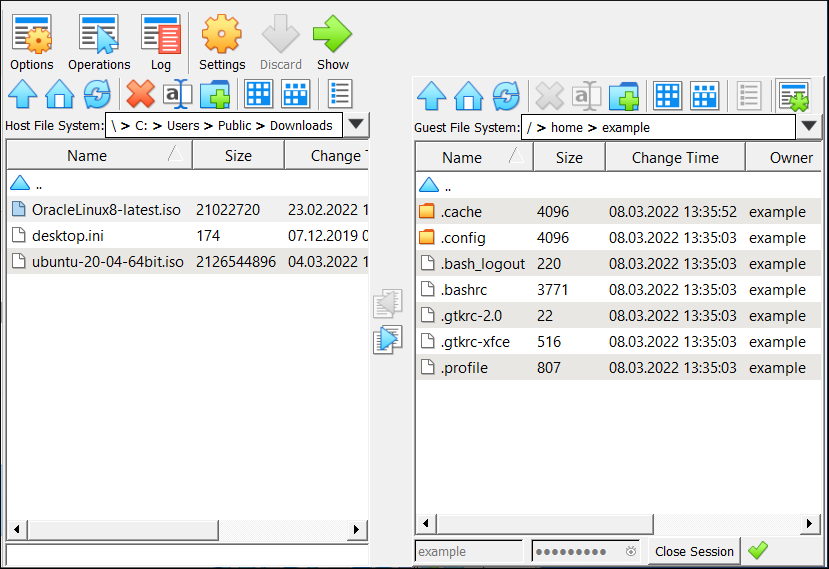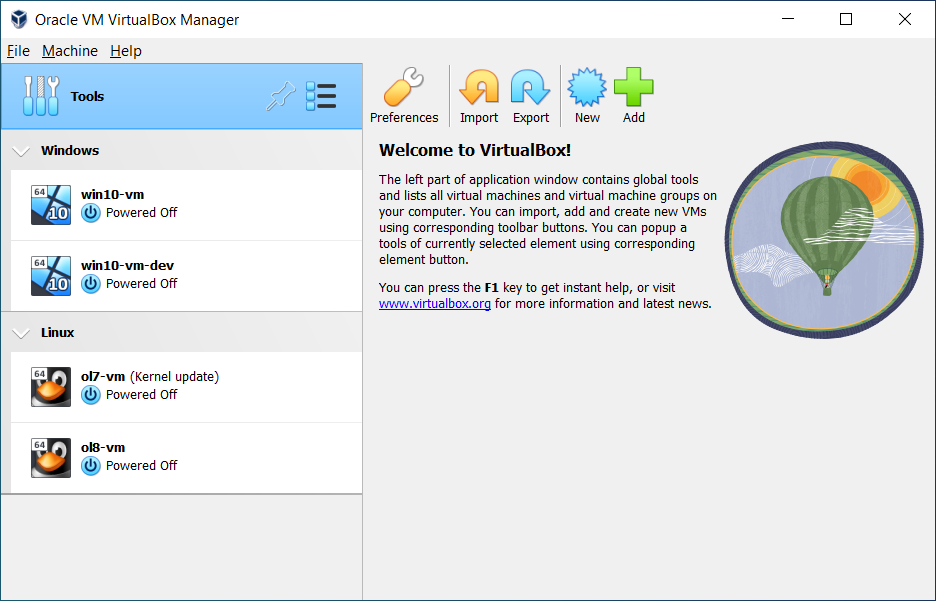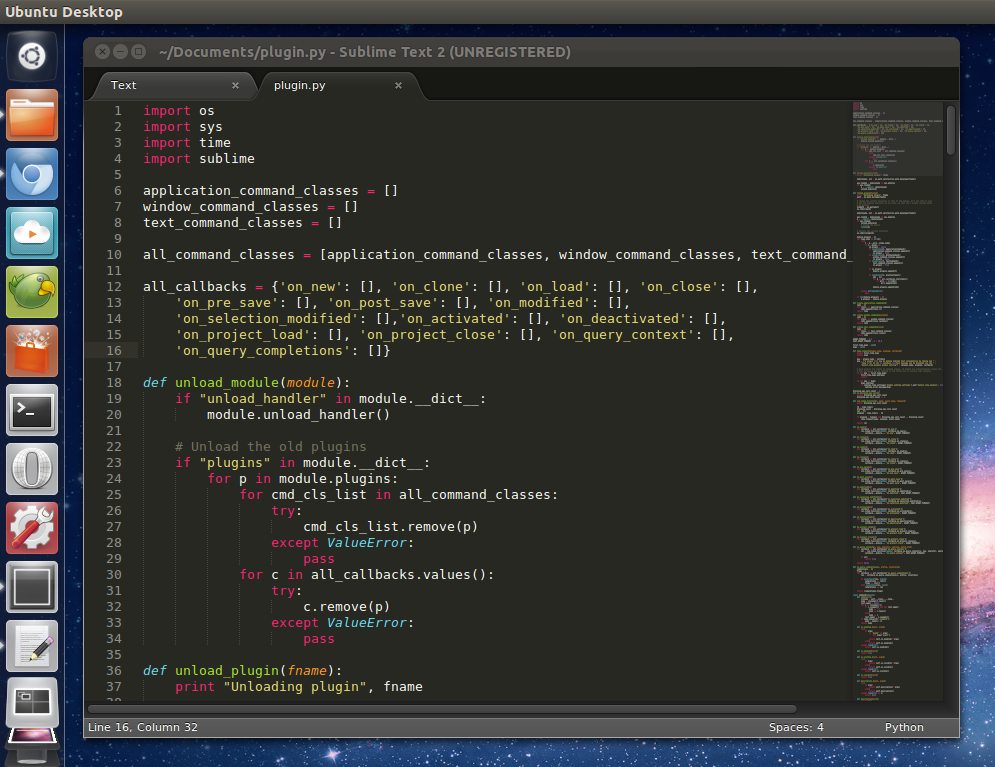Cztomczak changed the title Linux 32-bit VirtualBox or chroot Linux 32-bit build: VirtualBox or chroot Mar 16, 2017 cztomczak closed this Jan 16, 2020 Sign up for free to join this conversation on GitHub. Oracle VM VirtualBox Base Packages - 6.1.26. Freely available for Windows, Mac OS X, Linux and Solaris x86 platforms under GPLv2: Platform. Windows Installer. Solaris 10 5/08 and later or Solaris 11.
- Download Linux VirtualBox Images. List of VirtualBox Images. Download (32-Bit - 940MB / 64-Bit - 1 GB) Ubuntu Kylin 20.04 (LTS) Download (3.6 GB) Ubuntu Kylin 20.10.
- In this video, I showed you how to download VirtualBox software 64 bit or 32 bit. You can download this VirtualBox software on Windows, Mac, and Linux OS as.
- Supports Linux virtual boxes; Comes shipped with configuration for various operating systems; Oracle VM VirtualBox 6.1.0 on 32-bit and 64-bit PCs. This download is licensed as freeware for the Windows (32-bit and 64-bit) operating system on a laptop or desktop PC from computer utilities without restrictions.
The virtualization hardware is enabled in the acceleration section of the system page although it is not supported by the host system, it should be disabled to start the virtual machine.
 But it doesn't let me make any settings since the Accept button is disabled.
But it doesn't let me make any settings since the Accept button is disabled.Linux 32 Bit Iso Virtualbox
And I repeat,

 create a 32-bit machine, not a 64-bit machine, since I have read that VirtualBox does not let you create 64-bit machines unless virtualization is activated (my PC does have virtualization, but by default it cannot be activate by any means, or by the BIOS, and also if I can create it, what I can't do is run it). And I find it very rare, since before if I could run virtual machines at least 32 bits on my computer, and now not, I don't know if it's the latest version of VirtualBox or something like that
create a 32-bit machine, not a 64-bit machine, since I have read that VirtualBox does not let you create 64-bit machines unless virtualization is activated (my PC does have virtualization, but by default it cannot be activate by any means, or by the BIOS, and also if I can create it, what I can't do is run it). And I find it very rare, since before if I could run virtual machines at least 32 bits on my computer, and now not, I don't know if it's the latest version of VirtualBox or something like thatBecause Oracle VM VirtualBox is designed to provide a generic virtualization environment for x86 systems, it can run operating systems (OSes) of any kind. However, Oracle VM VirtualBox focuses on the following guest systems:
Windows NT 4.0:
Fully supports all versions, editions, and service packs. Note that you might encounter issues with some older service packs, so install at least service pack 6a.
Guest Additions are available with a limited feature set.
Windows 2000, Windows XP, Windows Server 2003, Windows Vista, Windows Server 2008, Windows 7, Windows Server 2008 R2, Windows 8, Windows Server 2012, Windows 8.1, Windows Server 2012 R2, Windows 10 (non-Insider Preview releases), Windows Server 2016, Windows Server 2019:
Fully supports all versions, editions, and service packs, including 64-bit versions.
Note that you must enable hardware virtualization when running at least Windows 8.
Guest Additions are available.
MS-DOS, Windows 3.x, Windows 95, Windows 98, Windows ME:
Limited testing has been performed.
Use beyond legacy installation mechanisms is not recommended.
Guest Additions are not available.
Linux 2.4:
Limited support.
Linux 2.6:
Fully supports all versions and editions, both 32-bit and 64-bit.
For best performance, use at least Linux kernel version 2.6.13.
Guest Additions are available.
Certain Linux kernel releases have bugs that prevent them from executing in a virtual environment. See Buggy Linux 2.6 Kernel Versions.
Linux 3.x and later:
Fully supports all versions and editions, both 32-bit and 64-bit.
Guest Additions are available.
Oracle Solaris 10 and Oracle Solaris 11:
Fully supports all versions starting with Oracle Solaris 10 8/08 and Oracle Solaris 11.
Supports 64-bit prior to Oracle Solaris 11 11/11, and 32-bit.
Guest Additions are available.
FreeBSD:
Limited support.
Note that you must enable hardware virtualization when running FreeBSD.
Guest Additions are not available.
OpenBSD:
Supports at least version 3.7.
Note that you must enable hardware virtualization when running OpenBSD.
Guest Additions are not available.
OS/2 Warp 4.5:
Only MCP2 is supported. Other OS/2 versions might not work.
Note that you must enable hardware virtualization when running OS/2 Warp 4.5.
Guest Additions are available with a limited feature set. See Known Limitations.
Mac OS X:
Oracle VM VirtualBox 3.2 added experimental support for Mac OS X guests, with restrictions. See Section 3.1.1, “Mac OS X Guests” and Known Limitations.
Guest Additions are not available.
Oracle VM VirtualBox enables you to install and execute unmodified versions of Mac OS X guests on supported host hardware. Note that this feature is experimental and thus unsupported.
Oracle VM VirtualBox is the first product to provide the modern PC architecture expected by OS X without requiring any of the modifications used by competing virtualization solutions. For example, some competing solutions perform modifications to the Mac OS X install DVDs, such as a different boot loader and replaced files.
Be aware of the following important issues before you attempt to install a Mac OS X guest:


Mac OS X is commercial, licensed software and contains both license and technical restrictions that limit its use to certain hardware and usage scenarios. You must understand and comply with these restrictions.
In particular, Apple prohibits the installation of most versions of Mac OS X on non-Apple hardware.
These license restrictions are also enforced on a technical level. Mac OS X verifies that it is running on Apple hardware. Most DVDs that accompany Apple hardware check for the exact model. These restrictions are not circumvented by Oracle VM VirtualBox and continue to apply.
Only CPUs that are known and tested by Apple are supported. As a result, if your Intel CPU is newer than the Mac OS X build, or if you have a non-Intel CPU, you will likely encounter a panic during bootup with an 'Unsupported CPU' exception.
Ensure that you use the Mac OS X DVD that comes with your Apple hardware.
The Mac OS X installer expects the hard disk to be partitioned. So, the installer will not offer a partition selection to you. Before you can install the software successfully, start the Disk Utility from the Tools menu and partition the hard disk. Close the Disk Utility and proceed with the installation.
In addition, Mac OS X support in Oracle VM VirtualBox is an experimental feature. See Known Limitations.
Be sure to enable I/O APIC for virtual machines that you intend to use in 64-bit mode. This is especially true for 64-bit Windows VMs. See Section 3.4.2, “Advanced Tab”. For 64-bit Windows guests, ensure that the VM uses the Intel networking device because there is no 64-bit driver support for the AMD PCNet card. See Section 6.1, “Virtual Networking Hardware”.
Download (M - 0.6 GB / G - 1.6 GB)
If you use the Create VM wizard of the VirtualBox Manager, Oracle VM VirtualBox automatically uses the correct settings for each selected 64-bit OS type. See Section 1.7, “Creating Your First Virtual Machine”.
Virtualbox 32 Bit Linux Only
Copyright © 2004, 2020 Oracle and/or its affiliates. All rights reserved. Legal Notices